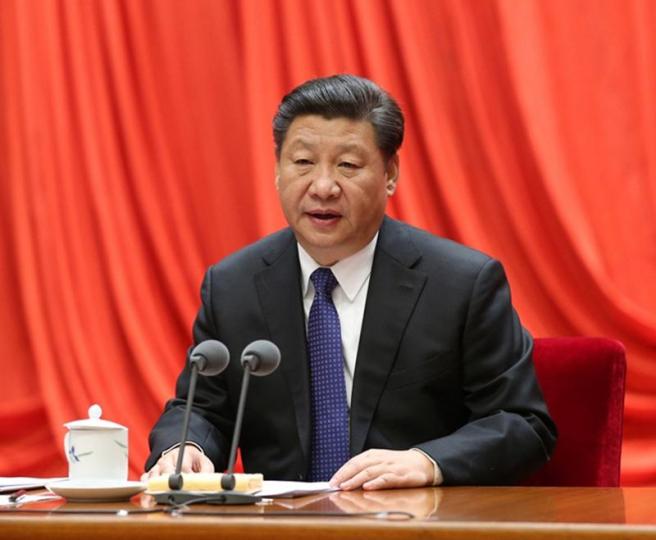Xi Jinping pledges return to Marxist roots for China’s Communists
The Chinese Communist party is going back to its Marxist roots, Xi Jinping pledged on Friday, as he stressed ideological purity in a speech to mark the party’s 95th anniversary.
Communist orthodoxy is hard to come by in an increasingly prosperous and materialist China where a growing wealth gap is generating class tensions. But the president stayed well within the careful choreography of party ceremony as he urged its 88m members not to “betray or abandon” Marxism.
“The whole party should remember, what we are building is socialism with Chinese characteristics, not some other -ism,” Mr Xi said in an 80-minute address in Beijing’s Great Hall of the People. The speech was live-streamed on the website of state news agency Xinhua as well as on YouTube — a site banned in China.
Mr Xi has used an anti-corruption campaign within the party and a crackdown on media and civil society to silence dissenting voices as he promotes the “Chinese dream” of a domestically unified and internationally powerful nation.
The push for a disciplined and united party has seen greater controls on academics’ work and travel combined with activities, such as hand-copying the Chinese Constitution, that are designed to focus the minds of party members in a society that has become more diverse and independent thanks to decades of economic reforms.
This week a Beijing court ruled that the editor of an influential magazine must publicly apologise for a 2013 article disputing the facts behind a favourite party propaganda story — the tale of a group of five Communist martyrs who leapt off Mt Langya in eastern China rather than surrender to Japanese soldiers.
Promotion of Mr Xi’s Chinese dream has not been limited to a Chinese audience. A series of videos designed to spread China’s vision of itself to global young people includes a rap video released this week by the Communist Youth League that says China’s problems are unfairly amplified by western media organisations.
Mr Xi also defended the country’s international stance during a time of friction along its maritime borders. China has drawn closer to Russia while sparring with Southeast Asian nations as friction increases over the resource-rich waters of the South China Sea. An arbitration ruling in The Hague is expected this month on a Philippine challenge to Beijing’s claims.
“China doesn’t covet other countries’ interests, nor does it envy other countries’ development but we won’t give up our rightful interests,” he said.
“The Chinese people don’t fear trouble but don’t seek trouble. Other countries should not expect us to trade away our core interests nor should they expect us to swallow circumstances that harm our sovereignty, security and developmental interest.”
He also spoke out strongly against Taiwanese independence, in one of his first public remarks on the subject since the election of Taiwanese president Tsai Ing-wen, who is less friendly to Beijing than her predecessor. Taiwan has been self-ruled since the Communists won the Chinese civil war in 1949 but Beijing still views it as a renegade province.
“No matter who and no matter in what form, no splittism can be accepted by the 1.3bn Chinese people,” he said, to a round of applause.













